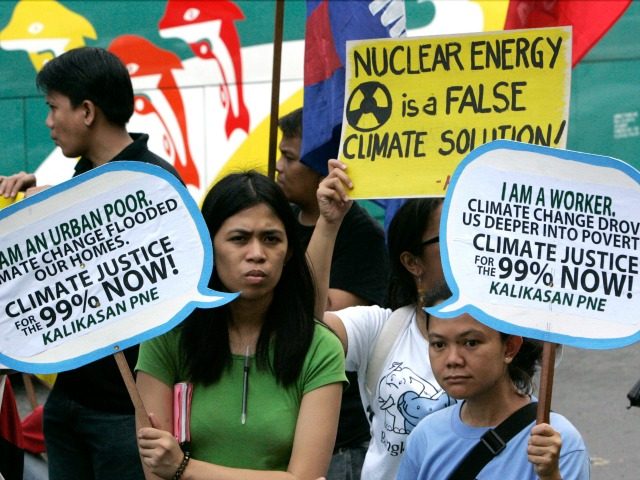Two leading U.S. bishops have publicly endorsed the Climate Solutions Commission Act of 2017, aimed at reducing emissions of greenhouse gases, particularly carbon dioxide.
The letter is signed by Bishop Oscar Cantú, the chairman of the Committee on International Justice and Peace of the U.S. Conference of Catholic Bishops (USCCB) and Bishop Frank J. Dewane, chairman of the Committee on Domestic Justice and Human Development of the USCCB.
“The Climate Solutions Commission Act is one way to fulfill what Pope Francis has identified as an ‘urgent need to develop policies so that, in the next few years, the emission of carbon dioxide and other highly polluting gases can be drastically reduced,’” the bishops state in their letter.
The bill, introduced last spring by Rep. John K. Delaney (D-MD), acts on a series of unproven assumptions that would make curbing carbon dioxide and other greenhouse gases a national priority. Rather than proposing studies on climate change involving a serious debate on its scope, causes and consequences, the bill assumes a consensus on such questions and proceeds immediately to the investigation of ways to reduce emissions.
According to the Congressional “findings” upon which the bill’s recommendations are based, “there has been a marked increase in extreme weather events and the negative impacts of a changing climate are expected to worsen in every region of the United States.”
Moreover, the bill states that Congress has similarly found that “if left unaddressed, the consequences of a changing climate have the potential to adversely impact the health of all Americans, harm the economy, and impose substantial costs on State and Federal budgets.”
Efforts to reduce climate risk, the bill continues, “should protect our Nation’s economy, security, infrastructure, agriculture, water supply, and public safety.”
But a number of climate scientists, such as Princeton Physicist Dr. Will Happer, have suggested the need for a national discussion on the benefits along with the possible liabilities of increased carbon dioxide output.
According to Happer and others, the environment would not only tolerate but would positively benefit from increased carbon dioxide emissions. In point of fact, carbon dioxide (CO2) is not a pollutant at all, but a non-toxic, odorless, colorless gas essential for the health and growth of plants.
Happer has also noted that historically the earth has warmed and cooled through natural weather fluctuation and that the fear mongering regarding global warming/man-made climate change is based on false assumptions, unsustained by science.
A recent study published in the journal Nature Geoscience concedes that global warming may be occurring more slowly than earlier thought, and that previous climate models may have been “on the hot side.”
Myles Allen, professor of geosystem science at the University of Oxford and one of the study’s authors told the Times: “We haven’t seen that rapid acceleration in warming after 2000 that we see in the models. We haven’t seen that in the observations.”
The level of uncertainty surrounding climate change and its effects would seem to suggest prudence rather than haste, especially when actions taken to curb it would cost taxpayers enormous sums of money while promising little in the way of results.
Nonetheless, in their letter, Bishops Cantú and Dewane lend their unqualified support to a bill that would eliminate scientific debate and jump directly to enacting measures to reduce CO2.
“This legislation is an important bipartisan step for protecting the environment and mitigating the harmful effects of climate change,” the bishops state, adding that the bill “has the potential to inspire positive and concrete solutions towards protecting our common home.”
Follow Thomas D. Williams on Twitter Follow @tdwilliamsrome

COMMENTS
Please let us know if you're having issues with commenting.